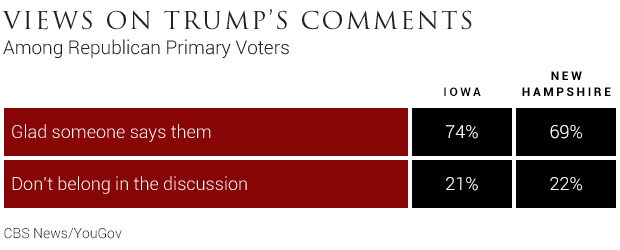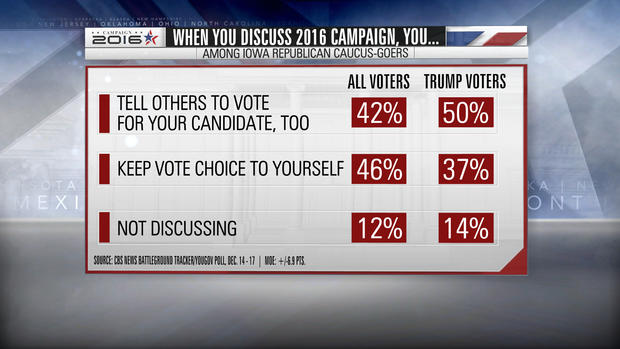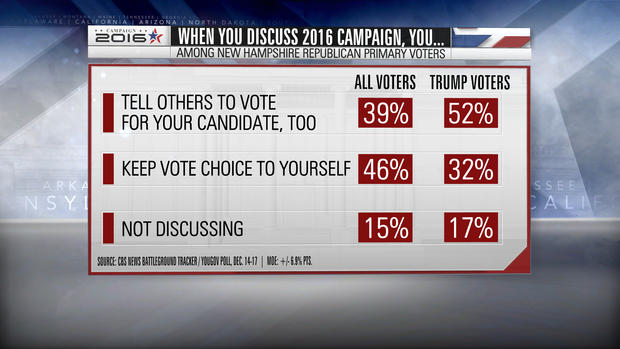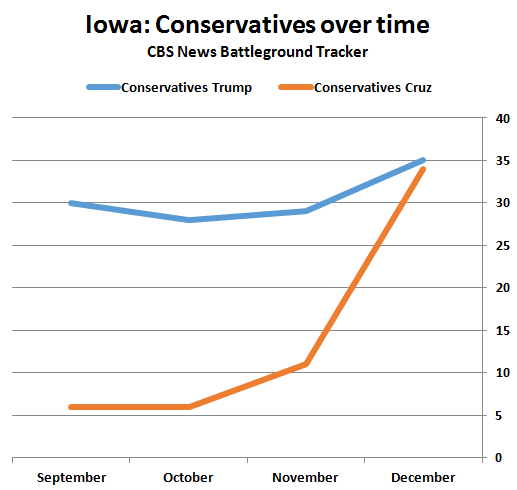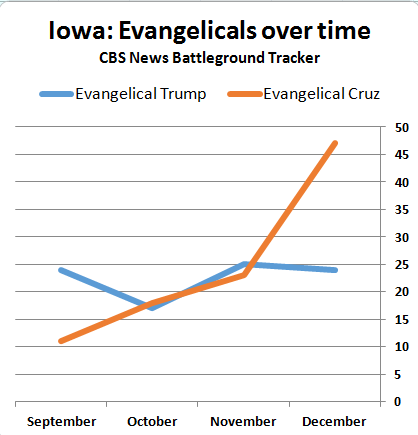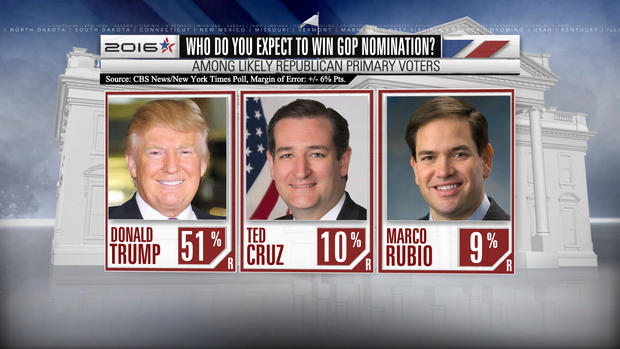The durability of Donald Trump
When Donald Trump's poll numbers started rising this summer, much of the political world began assuming that at some point they would slip. But as 2015 ends, that's no longer the case.
People may argue over what's behind Trump's lead, but what's clear is that his voting base is durable. Even as Ted Cruz overtook him in Iowa, Cruz's gains came largely because he was able to pick up more of Ben Carson's former backers, and not as much because Trump had slipped in any dramatic way.
Trump's voters are characterized by their decisiveness, and moreover, nationally, more than half of Trump voters' minds are already made up, according to the most recent CBS News/ New York Times poll. In the early states, the same holds true: his supporters are most likely to describe themselves as "very strong" in their support, and also as having "decided" already.
As each controversial comment from the billionaire candidate brought new speculation about his impending free fall, his voters generally agreed with his policy plans. For them, sometimes the simplest answer is best. Further, Republicans in the early states told us that they like the very fact that Trump says whatever he wants. Whether or not they agree, they're glad he raises the topics.
Far fewer Republicans object to Trump's comments or feel they don't belong in the discussion at large. In a year when so many say they're discouraged by the political system, these voters are also fine -- even eager -- to see politics as usual upended.
Trump has had people talking all year, and now, his voters are talking. They are telling others to back Trump, too. We asked them in Iowa, New Hampshire, and South Carolina, and more so than than Republicans overall, Trump's boosters said that when the subject of 2016 politics comes up, they push for Trump. They do not keep their support to themselves, which should, if nothing else, set up some interesting holiday conversations around the dinner table.
Trump's support has defied convention by cutting across demographic groups and the usual breakdowns within the GOP. Though many have noted he fares better among the non-college-educated segment of the party than those who hold college degrees, in our polling we have found that he does okay with both groups and relatively better with the former. Non-college white voters are an essential group who make up a key part of the Republican base. And they have voted Republican by double-digit margins in presidential elections. In other key groups -- for example, in Iowa among conservatives, evangelicals -- Trump has held or gained even as rivals like Cruz have risen.
The question heading into 2016 seems to more about whether he can grow his support, particularly if other support should coalesce around one or two other candidates. He'd likely need another ten percent or so in the early states if the field does start to narrow, though there aren't many signs it is. At his current levels and with the current fractured field, he's positioned to win delegates out of the early states, at the very least, which is really what counts. And most Republicans nationwide say they do now expect him to be the nominee. In that regard, anyway, things certainly have changed since the summer.

